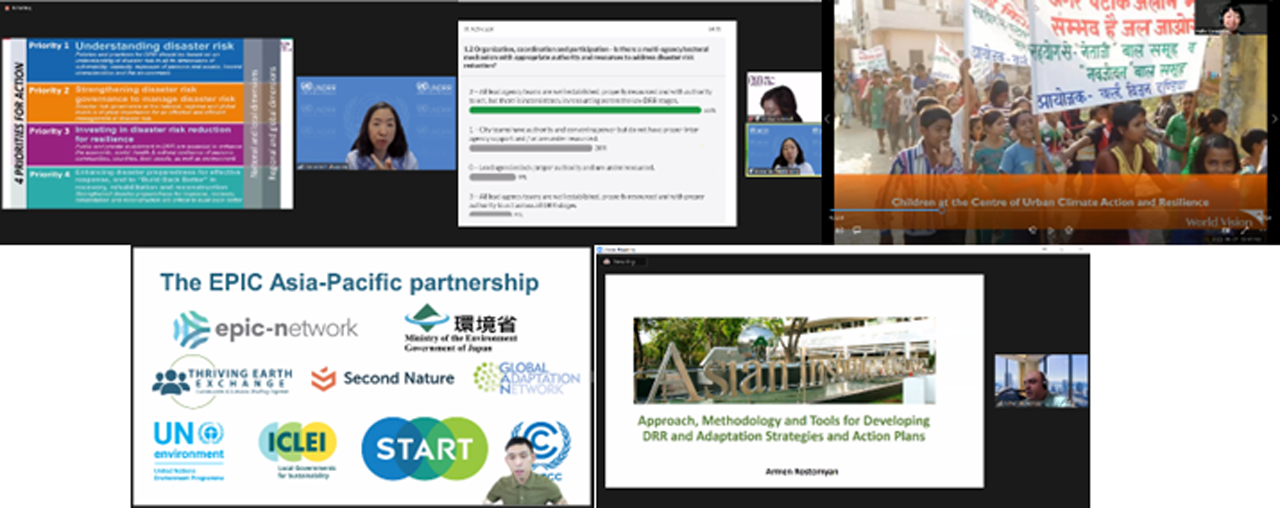Training Programme on Building Cities’ Resilience to Climate and Disaster Risks
6-8 June 2022
Virtual Training

The virtual training on building cities’ resilience to climate and disaster risks was jointly organised by AIT-RRC.AP in consortium with the United Nations Office for Disaster Risk Reduction (UNDRR), the United Nations Environment Programme (UNEP), the United Nations Development Programme (UNDP), the Local Governments for Sustainability (ICLEI), the World Vision International (WV), and the Educational Partnerships for Innovation in Communities - Network (EPIC-N) from 06 – 08 June 2022. The three days regional training was convened to strengthen the capacity of city officials in the field of climate change adaptation and disaster risk reduction and to assist them in building their cities' resilience to climate and disaster risks through integrating climate change adaptation and disaster risk reduction into wider city development plans and strategies. For the training 430 participants registered and in total (three days combined) 250 participants joined the training globally.
The training structure and content were composed of mutually supportive seven training modules broken down into eight sessions (delivered in three days) including a series of content presentations, group exercises, panel group presentations, and activities focusing on presenting the use of international disaster risks and resilience assessment and planning tools, approaches, methodologies, and case studies developed by AIT.RRC.AP, UNDRR, UNEP, UNDP, ICLEI, World Vision, and EPIC-N.
The training formally began with the welcome address from Dr Naoya Tsukamoto, Director, AIT-RRC.AP; that was followed by short keynote speeches of Mr Gen’ichiro Tsukada, Director of Climate Change Adaptation Office, MoEJ, Mr Marco Toscano-Rivalta, Chief of Office, UNDRR ROAP; Mr Emani Kumar, Executive Director, ICLEI South Asia Secretariat and Dr Iyad Abumoghli, Director of the UNEP Faith for Earth Initiative.
The training on day one included two sessions: Session One focused on Global Frameworks for Urban Resilience which included a presentation from AIT RRC.AP and UNDRR and Session Two focused on Building Cities’ Resilience at Cities and Local Level which included presentations from UNDRR and ICLEI. Similarly, on day two sessions were delivered on Tools to Assess Cities’ Resilience which included a presentation from UNDRR and Engaging Faith Actors in Building Cities’ Resilience, led by UNEP Faith for Initiatives and World Vision International. On the last day of the training, EPIC-N Asia delivered a session on Engaging Academia in Building Cities’ Resilience which was followed by a theoretical and practical session on Development of Resilient Cities’ Action Plans.
